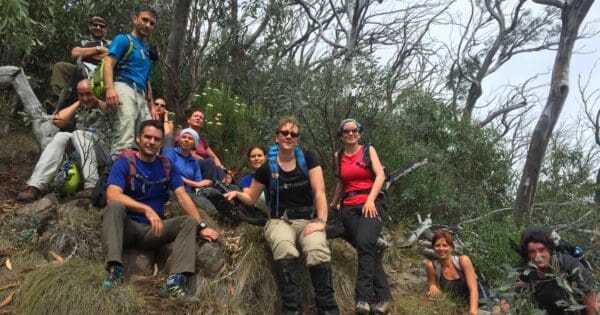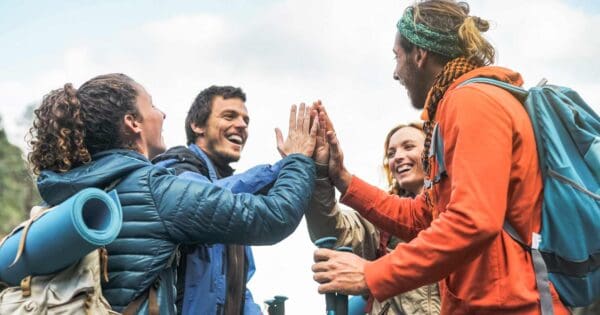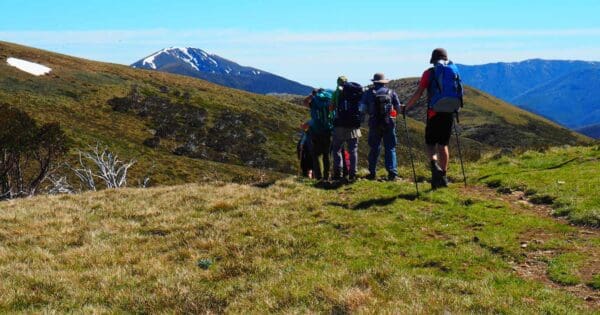Hiking is a popular outdoor activity that allows individuals to connect with nature, explore breathtaking landscapes, and challenge themselves physically. Whether you’re a seasoned hiker or just starting out, it’s normal to have questions about various aspects of hiking. In this post, I’ll cover the top 20 commonly asked hiking questions to help you prepare for your next adventure.
1. What are the essential items I should pack for a hiking trip?
When heading out on a hike, it’s crucial to pack essential items such as a map, compass, water, snacks, appropriate clothing, a first aid kit, and a torch.
2. How do I choose the right hiking boots?
Choosing the right hiking boots involves considering factors such as terrain, ankle support, comfort, and durability. It’s recommended to try on different boots and ensure a proper fit before making a decision.
3. What are some beginner-friendly hiking trails?
For beginners, it’s ideal to start with shorter and less challenging trails. Grade 2 or 3 hikes are perfect for this. Research local parks or hiking associations for beginner-friendly options and gradually increase the difficulty as you gain experience.
4. How can I stay safe while hiking?
To stay safe while hiking, it’s essential to inform someone about your plans, be aware of your surroundings, stay on marked trails, pack necessary safety equipment, and follow weather forecasts.
5. What should I do if I encounter wildlife on the trail?
If you encounter wildlife on the trail, maintain a safe distance, avoid sudden movements, and never feed or approach the animals. Admire them from a distance and respect their natural habitat.
6. How do I navigate and read a trail map?
Learning how to navigate with a topographic map involves understanding symbols, contour lines, and landmarks. Familiarise yourself with the map legend and practice map reading skills before your hike.
7. What is the best time of year to go hiking in a specific area?
The best time to go hiking in a specific area depends on factors like weather conditions, trail accessibility, and personal preferences. Research the region and consider the seasons when planning your hike.
8. How can I prevent blisters while hiking?
To prevent blisters, it’s essential to wear well-fitting and moisture-wicking socks, break in your hiking boots beforehand, use blister prevention products, and stop to address any hotspots before they become blisters.
9. What are some recommended stretches and warm-up exercises before hiking?
Engaging in warm-up exercises and stretches before hiking helps prevent injuries. Focus on stretching your legs, hips, and back, and perform exercises that activate your core and lower body muscles.
10. How do I properly pack and adjust a backpack for a hiking trip?
When packing a backpack, distribute weight evenly, place heavier items closer to your back, and use compression straps to secure the load. Adjust the backpack straps to ensure a comfortable fit.
11. What are the Leave No Trace principles, and why are they important?
The Leave No Trace principles promote responsible outdoor ethics, including minimising human impact on the environment. These principles help preserve natural areas, protect wildlife, and ensure future generations can enjoy the outdoors.
12. What should I do if I get lost while hiking?
If you find yourself lost while hiking, stay calm, retrace your steps, consult your map and compass, and if necessary, seek recognisable landmarks or wait for help while staying in a safe location.
13. How do I prepare for hiking at high altitudes?
Preparing for high-altitude hiking involves gradually acclimatising to the altitude, staying hydrated, maintaining a slow and steady pace, and being aware of symptoms of altitude sickness.
14. Are there any specific safety precautions I should take when hiking alone?
When hiking alone, take extra care to ensure your safety. Inform someone about your plans and expected return time. Stick to well-traveled and marked trails. Carry a fully charged phone and a portable charger. Be extra cautious and aware of your surroundings. Trust your instincts and avoid taking unnecessary risks.
15. How do I choose the right hiking trail for my fitness level?
Consider your fitness level, experience, and the difficulty rating of the trail. Start with trails that match your current fitness level and gradually increase the difficulty as you build strength and endurance.
16. What are the signs and symptoms of dehydration, and how can I prevent it while hiking?
Signs of dehydration include thirst, dry mouth, dizziness, fatigue, and decreased urine output. Prevent dehydration by drinking plenty of water before, during, and after your hike. Carry a sufficient amount of water and hydrate regularly.
17. How do I deal with inclement weather while hiking?
Check the weather forecast before your hike and be prepared for changing weather conditions. Pack appropriate rain gear, extra layers, and consider rescheduling or altering your plans if severe weather is expected.
18. What are some tips for camping overnight during a multi-day hiking trip?
Choose a suitable campsite away from hazards and water sources. Set up your tent properly, following manufacturer instructions. Practice Leave No Trace principles while camping and properly store food to avoid attracting wildlife.
19. Are there any hiking apps or websites that can help me plan my trips?
Yes, there are several hiking apps and websites available that provide valuable information for trip planning. Some popular ones include Hiiker App, Pocket Earth, Gaia GPS, Avenza Maps, and Wikiloc to name a few.
20. What are some common hiking etiquette guidelines I should follow on the trail?
Practice hiking etiquette to ensure a positive experience for everyone. Yield to uphill hikers, stay on designated trails, keep noise levels low, pack out your trash, and be respectful of nature and other hikers.
Whether you’re a beginner or a seasoned hiker, continuous learning and preparation will enhance your outdoor adventures. Remember to prioritise safety, respect nature, and plan ahead for an enjoyable and rewarding hiking experience. So grab your gear, lace up your boots, and get out on the trail.
Do you have any questions?
Join the conversation on Trail Talk
- This forum has 3 topics, 9 replies, and was last updated 4 months, 2 weeks ago by .
-
- Topic
- Voices
- Last Post
- You must be logged in to create new topics.





